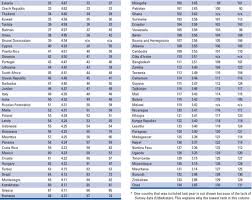
| Vietnam drops six places to 65th in global competitiveness rankings | |
Vietnam’s competitiveness assessment dropped six places to 65th among 142 economies in the Global Competitiveness Report 2011-2012 issued by the World Economic Forum. The yearly report, released Wednesday, compares the business operating environment and competitiveness of 142 economies worldwide. According to the report, Vietnam lost ground in ten of 12 pillars of the Global Competitiveness Index and only had significant improvement in the macroeconomic environment (up 20 places to 65th), limiting its fall in the ranking. The report lists large budget deficit in 2010 (at six percent of GDP) and nearly double-digit inflation as major macroeconomic challenges for the Vietnamese economy. Infrastructure remains a major challenge for the country despite some improvement in recent years, with particular concerns about the quality of roads and ports, the report says. Although education appears to be satisfactory in terms of quality, enrollment rates at primary, secondary, and tertiary levels remain low, according to the report. Institutional environment is also considered a challenge. Regulation is perceived as burdensome, with the number of procedures required at nine and time required to start a business at 44 days. In addition, there are concerns regarding the level of intellectual property protection and the respect of property rights. Finally, corruption is considered frequent and pervasive. Going forward, Vietnam will have to build on its strengths while addressing the economy’s numerous challenges. According to the report, among Vietnam’s competitive strengths are a fairly efficient labor market and innovation potential given the stage of development. In addition, its relatively large market size benefits from a particularly large export market. This year’s report has Switzerland at the top of the overall rankings. Singapore overtakes Sweden for second position. Northern and Western European countries dominate the top ten with Sweden (third), Finland (fourth), Germany (sixth), the Netherlands (seventh), Denmark (eighth) and the United Kingdom (tenth). Japan remains the second-ranked Asian economy at ninth place, despite falling three places since last year. | |
| Thanh Nien News |
